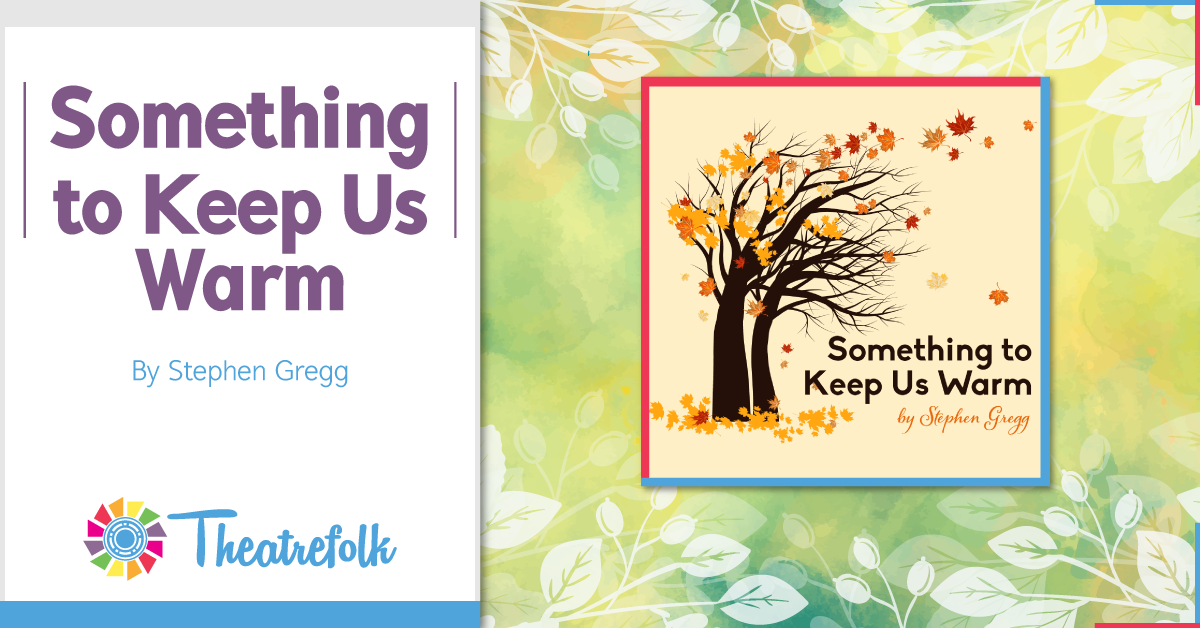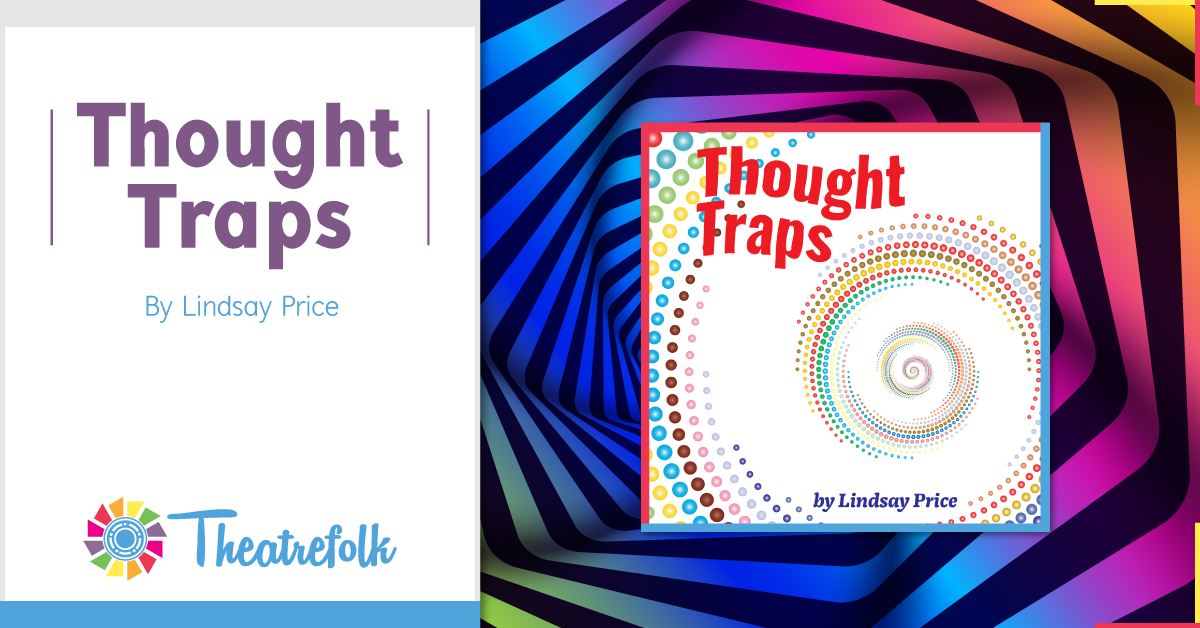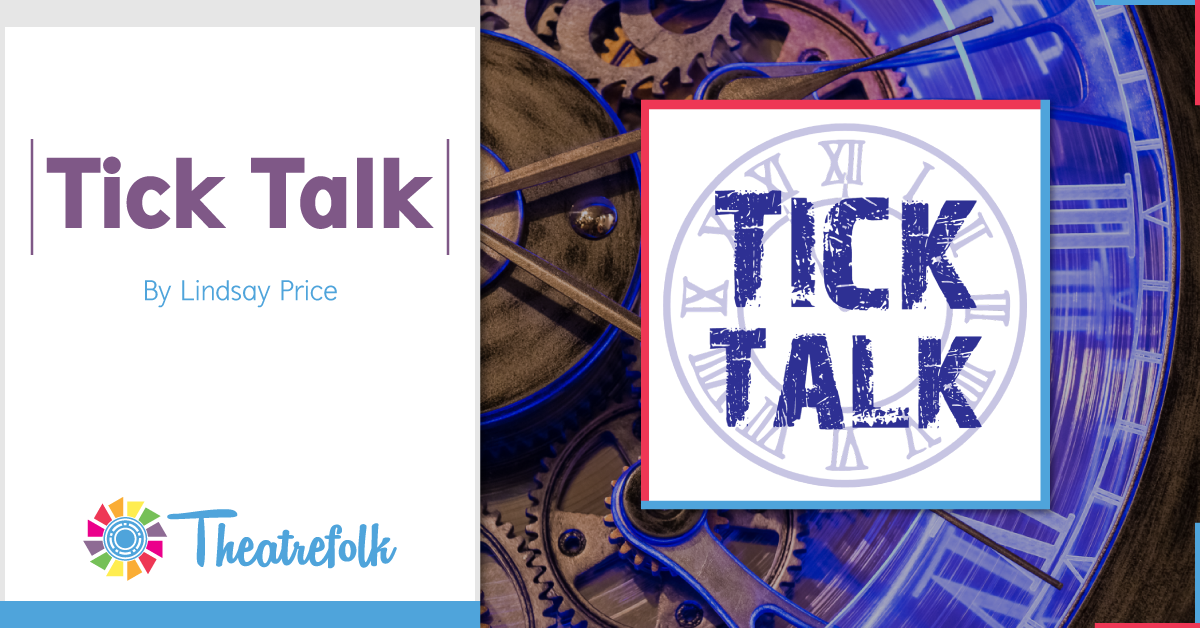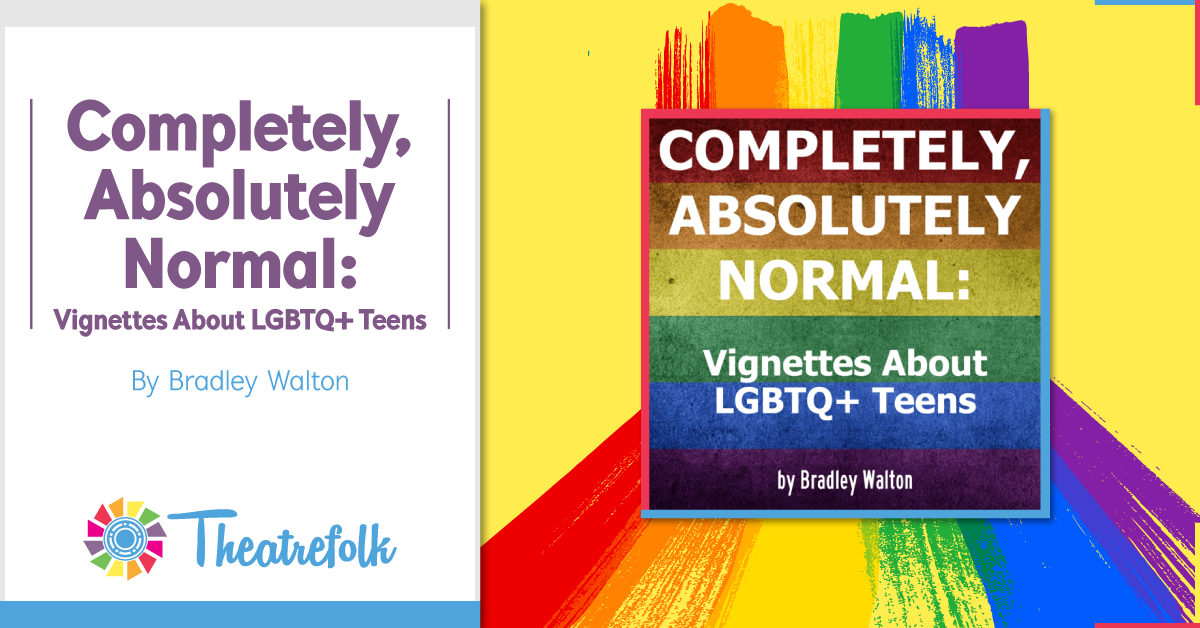Theatrefolk Featured Play – Something to Keep us Warm by Stephen Gregg
Welcome to our Featured Play Spotlight. Something to Keep us Warm by Stephen Gregg is a fantastic competition piece and an incredible experience for your high school student performers.
Norma is running out of time. Thanksgiving Trick or Treat is upon her and the tablesweat isn’t finished and she can’t remember which of her daughters is older. How does a family deal with watching one of their own disappear?
This heartbreaking and hilarious one act would be a wonderful experience for students onstage and off. Lots for your tech team to explore—from ghost costumes, to lighting, to creating a “tablesweat.”
Why did we publish this play?
Stephen Gregg is well known for his play This is a Test. It’s been performed by high schools for over 20 years. Something to Keep us Warm is a different experience – Humour and heartbreak is difficult to pull off, and that is exactly what Stephen’s new work does. Add to that, any time a script has the opportunity for student driven tech elements, we’re in. A fantastic competition piece.
Let’s hear from the author!
1. Why did you write this play?
I started the play 25 years ago. It was meant to be the first scene of a full-length play that I was working on but, when I finally decided to publish the longer play without it, I had a 25 minute min play that didn’t belong anywhere. And it didn’t really stand on it’s own. Norma, the mother, was dying and the kids were angry. There was no center and no drive, so I put it away.
Then one week I was due to present at my writer’s group, Lab Twenty6, and I didn’t have anything. I brought in the play and the feedback was smart, and over the course of about four months I developed the play.
It has what I didn’t have 25 years ago: clear objectives. I want to go to the party. I want to comfort a loved one. I want to stop my mother’s crazy behavior. I want to protect my family, even after I’m gone.
2. Describe the theme in one or two sentences.
The things we love best never altogether go away.
3. What’s the most important visual for you in this play?
Easy. It’s the tablecloth that extends all the way across the stage at the end of the play.
4. If you could give one piece of advice for those producing the play, what would it be?
Play the lines of conflict, not the ending. Keeping the warm end of the play too much at front of your production will result in what I had for twenty or so years: a play that sags under the weight of its sentiment.
5. What is your favourite moment in this play?
My favorite moment is the end: the actions and the character and the themes all get wrapped up — literally wrapped up — in the tablecloth that the mother has been furiously working. (It has often made people cry.)



